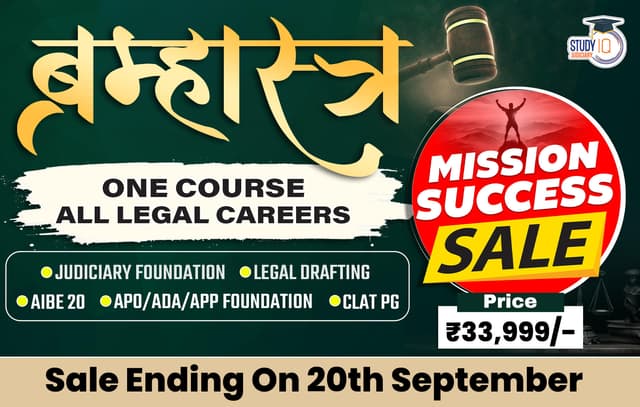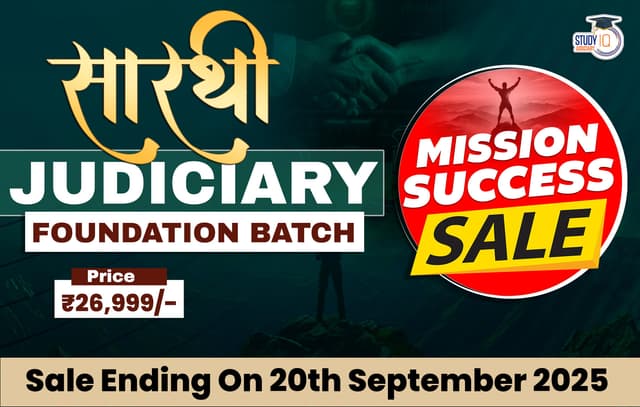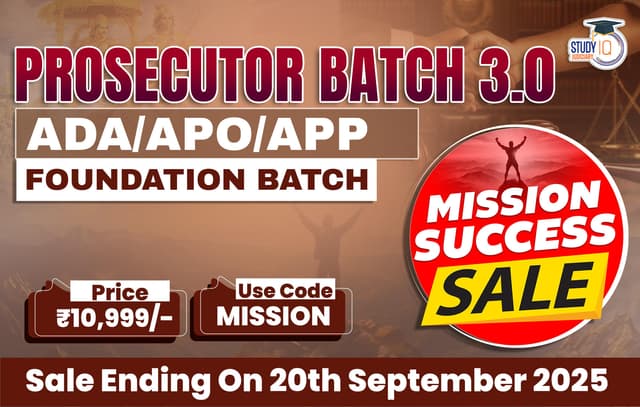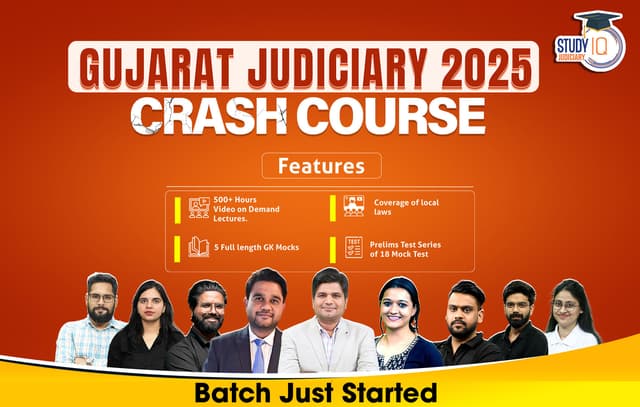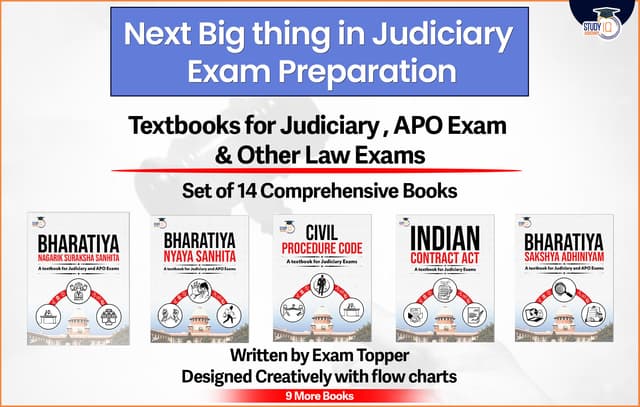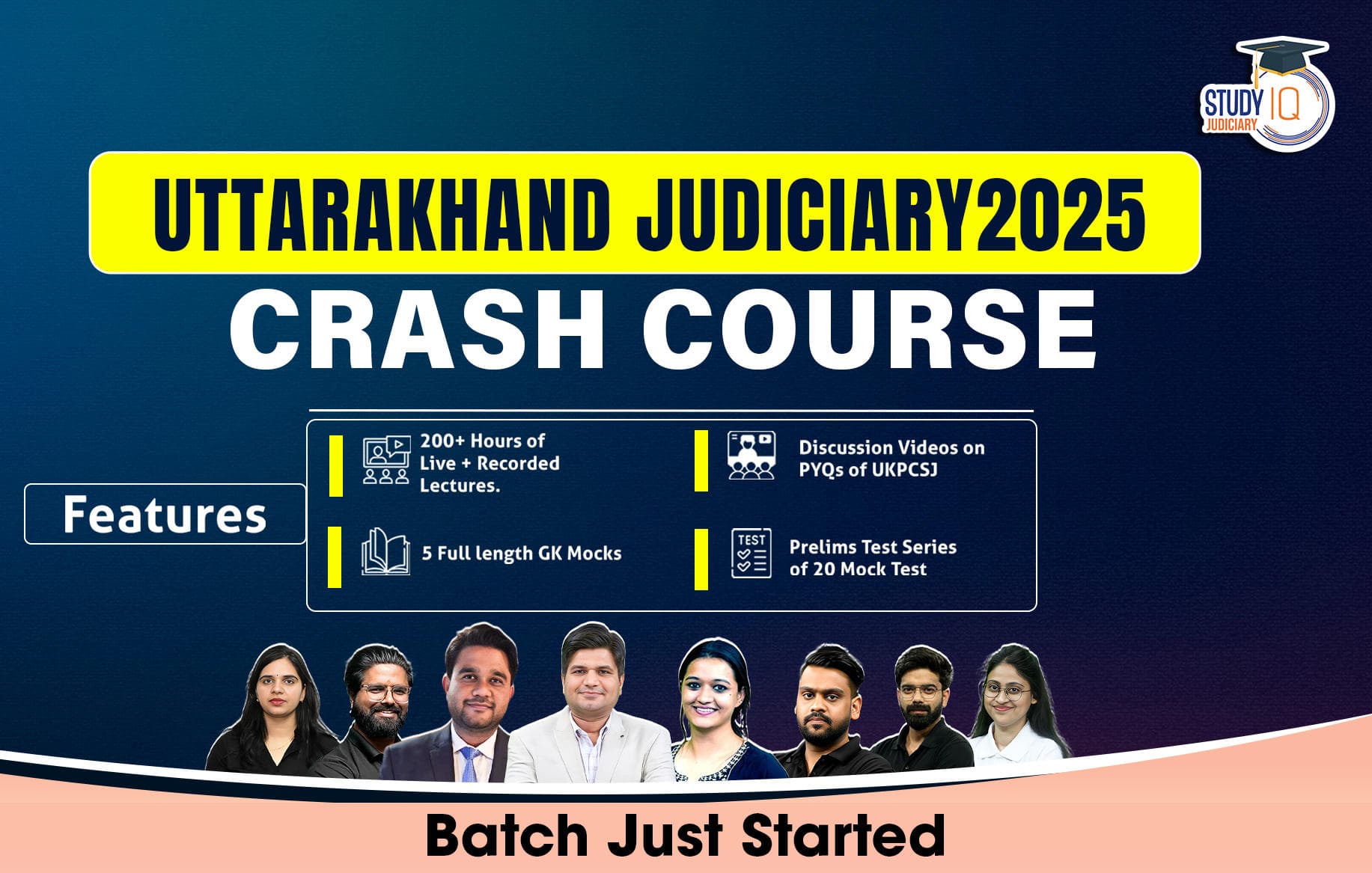Table of Contents
The Supreme Court of India has reiterated a fundamental tenet in electoral jurisprudence – Aadhaar cards cannot be deemed definitive evidence of citizenship. This stance arose during hearings on petitions contesting the legitimacy of the Special Intensive Revision (SIR) of electoral records being executed in Bihar. The dispute has included several political parties, civil society organisations, and notable activists, resulting in substantial political and constitutional implications.
The Supreme Court’s decision, based on the legal principles of citizenship and voting rights, highlights significant issues about institutional trust, documentation difficulties, and the risk of disenfranchising qualified voters.
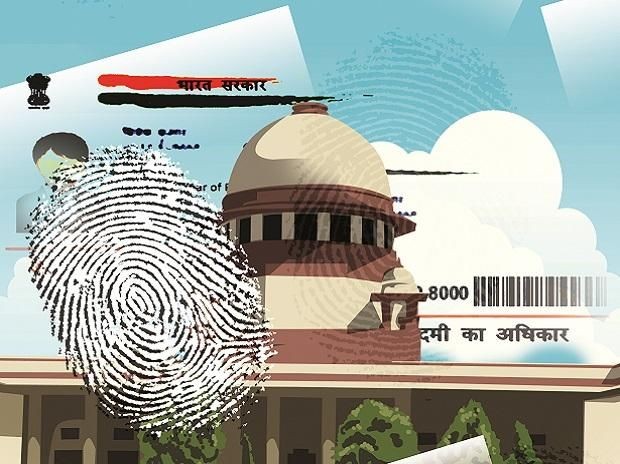
Special Intensive Revision (SIR) of Electoral Rolls in Bihar: Background
- The Special Intensive Revision (SIR) is a focused initiative conducted by the Election Commission of India (ECI) to update and cleanse the electoral records.
- The ECI stated that the initiative in Bihar sought to “eliminate ineligible individuals“, encompassing deceased persons, migrants registered in different locations, and non-citizens, to uphold the integrity of the election process.
- The decision on June 24, 2025, to implement the SIR sparked significant controversy, with petitioners claiming that the process might disenfranchise almost ten million voters.
- The ECI asserted that over 6.5 crore of Bihar’s 7.9 crore voting populace necessitated no new documentation, as their names or their parents’ names were already listed in the 2003 election record.
- Opposition parties and civil society activists contended that the SIR effort was designed to eliminate genuine voters from the list rather than promote inclusion, leading to judicial scrutiny.
The Supreme Court Proceedings
- The issue was presented to a panel of Justices Surya Kant and Joymalya Bagchi.
- The court initially described the conflict as stemming from a “trust deficit“ between the ECI and segments of the public.
- The petitioners, comprising RJD leader Manoj Jha, TMC MP Mahua Moitra, Congress’s K. C. Venugopal, Supriya Sule from the Sharad Pawar NCP faction, and CPI’s D. Raja, contended that people with Aadhaar, ration cards, and Electoral Photo Identity Cards (EPIC) were being excluded from the electoral rolls. They additionally asserted that numerous citizens, especially in rural Bihar, faced difficulties in acquiring birth certificates or parental documents.
- Senior counsel Kapil Sibal emphasised cases in which people recorded as “dead” by ECI records were subsequently shown to be living, and conversely.
- Political activist Yogendra Yadav contended that the process favoured deletion over addition, highlighting the disparity between the overall voting population (7.9 crore) and the estimated adult population (8.18 crore).
- In response, senior counsel Rakesh Dwivedi, representing the ECI, asserted that inaccuracies were unavoidable during the draft phase but could be corrected before the publishing of the final roll.
Aadhaar and Citizenship: The Court’s Reasoning
The bench concurred with the ECI’s stance that Aadhaar and voter ID cards cannot provide definitive evidence of citizenship. The reasoning is based on the fact that:
- Aadhaar serves as an identification and residency document, rather than a citizenship document, as established in K.S. Puttaswamy v. Union of India (2018).
- Citizenship, as per the Citizenship Act of 1955, is established through birth, descent, registration, naturalisation, or territorial incorporation, necessitating verification with statutory documentation.
- The election roll, as specified in Section 16 of the Representation of the People Act, 1950, shall exclusively comprise Indian nationals, necessitating documentary verification.
- The court underscored that a person’s presence in Bihar, absent corroborative documentation, does not inherently entitle them to voter registration.
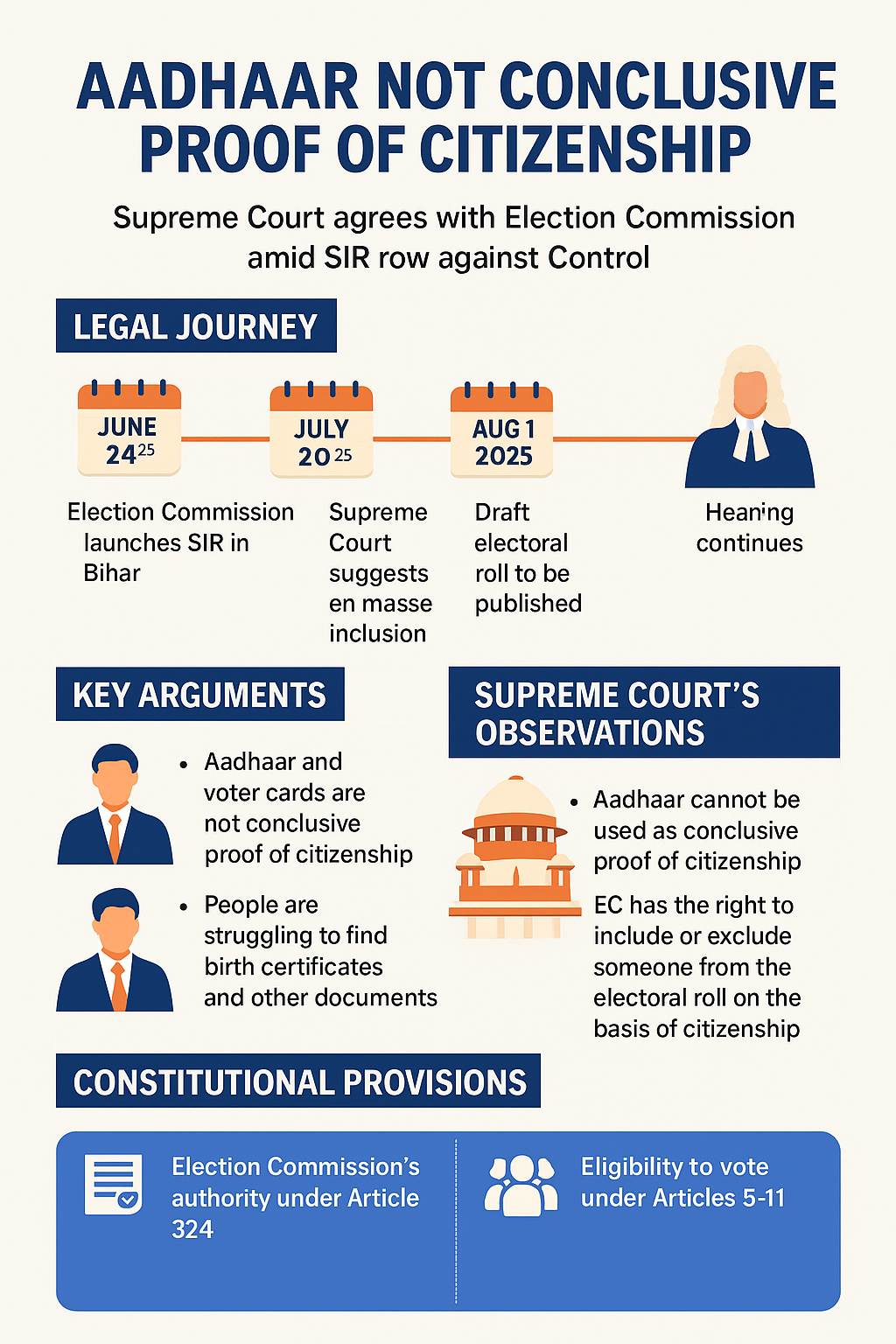
Constitutional Dimensions
The dispute involves multiple constitutional provisions:
- Article 326: Confers the right to vote in elections for the House of the People and the State Legislative Assemblies to all citizens aged 18 and above, contingent upon requirements established by legislation.
- Article 324: Grants the Election Commission of India the authority to oversee, direct, and manage elections, encompassing the preparation and revision of electoral rolls.
- Article 14: Guarantees equality before the law – a principle cited by petitioners to contest the arbitrary removal of names.
- Article 19(1)(a): Acknowledges that political engagement via voting is a fundamental component of democratic expression.
- The court’s requirement for documentary evidence corresponds with the constitutional directive to guarantee that only citizens participate in the electoral process, thereby preserving the integrity of representative democracy.
- The Supreme Court has, in past rulings, such as Mohinder Singh Gill v. Chief Election Commissioner (1978), underscored that electoral processes must be fair, inclusive, and transparent.
Key Judicial Observations
- The SIR falls within the constitutional authority of the ECI, contingent upon its execution being fair and inclusive.
- The assertion that one crore voters will be disenfranchised is undermined by the reality that 7.24 crore of the 7.9 crore voters participated in the SIR process.
- The inconclusive character of Aadhaar in determining citizenship has been reiterated by previous decisions.
- The ECI must be equipped with precise data regarding voter counts, removals, and inclusions to substantiate the SIR procedure.
Broader Electoral and Legal Context
- The integrity of the electoral roll has been an ongoing concern in Indian election legislation.
- Previous scandals, including purported mass deletions in Andhra Pradesh and the inclusion of non-citizens in border states, underscore the precarious balance between preventing fraudulent voting and safeguarding the rights of qualified voters against disenfranchisement.
- The Bihar SIR controversy highlights the challenge of documentation in India, where a substantial segment of the population lacks valid birth certificates.
- The Supreme Court has endorsed Aadhaar’s function in welfare distribution but has often warned against equating it with citizenship verification. The Aadhaar card, established under the Aadhaar (Targeted Delivery of Financial and Other Subsidies, Benefits and Services) Act, 2016, serves primarily as an identity document. The Supreme Court, in the K.S. Puttaswamy (Aadhaar) case (2018), ruled that Aadhaar cannot be mandated for services not associated with subsidies and benefits.
Way Forward
- The hearing is ongoing, with the court scheduled to continue deliberations on the statistical and procedural aspects of the SIR.
- On July 28, 2025, the Supreme Court recommended that the ECI prioritise en masse inclusion over exclusion and regard Aadhaar and Voter ID as acceptable, if not definitive, documents.
- If any illegality is identified in the process, the court has retained the option to annul the entire SIR procedure. This acts as a vital check on the ECI’s authority and emphasises the judiciary’s function in safeguarding electoral democracy.
- The Supreme Court’s position in the Bihar SIR case upholds the constitutional and statutory premise that the ability to vote is contingent upon citizenship, which must be substantiated by credible documents.
- Aadhaar is a valuable identifier; nevertheless, its legal constraints inhibit it from functioning as definitive evidence.
- The resolution of this issue will have considerable ramifications, not only for the electorate of Bihar but also for electoral roll administration throughout India.
- It underscores the necessity for procedural clarity, public confidence, and institutional responsibility in protecting the fundamental democratic right to vote.

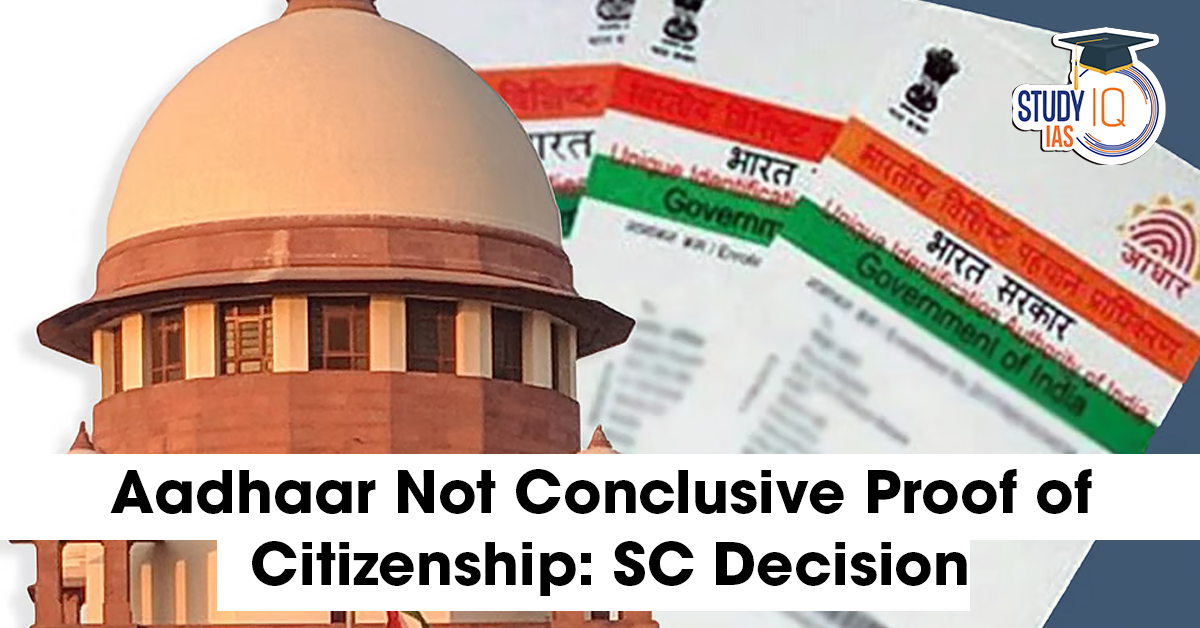
 Trial by Social Media: Public Shaming, D...
Trial by Social Media: Public Shaming, D...
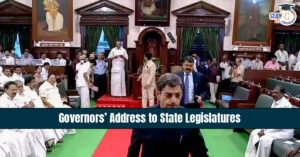 Governors’ Address to State Legislatur...
Governors’ Address to State Legislatur...
 Mandating Prior Approval for Corruption ...
Mandating Prior Approval for Corruption ...
